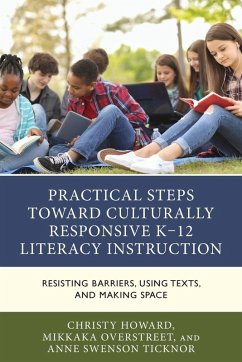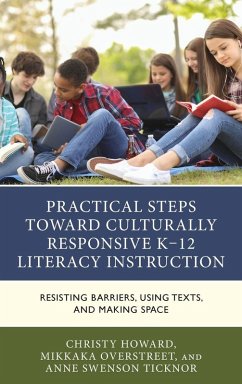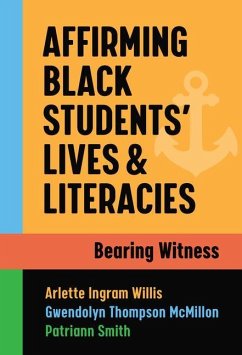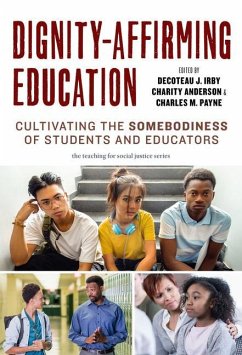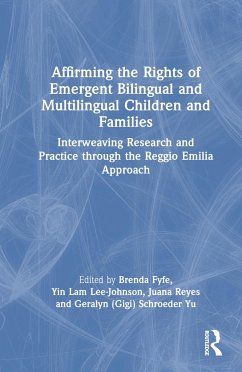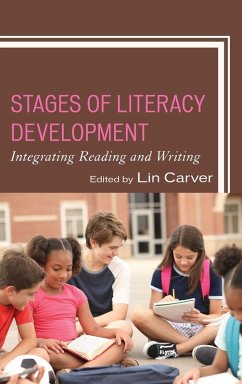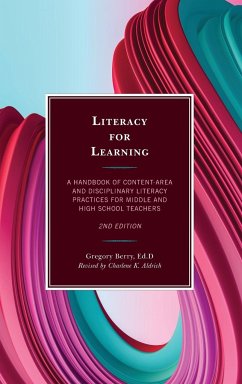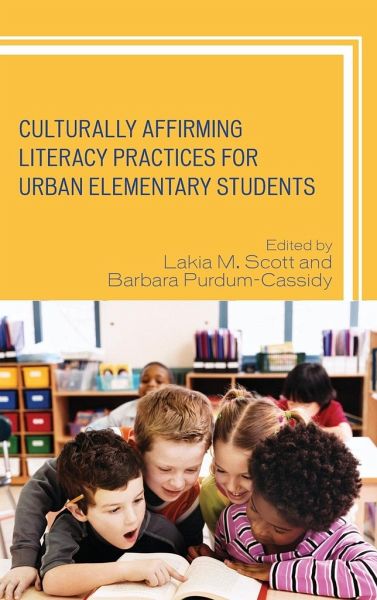
Culturally Affirming Literacy Practices for Urban Elementary Students
Versandkostenfrei!
Versandfertig in 1-2 Wochen
81,99 €
inkl. MwSt.
Weitere Ausgaben:

PAYBACK Punkte
41 °P sammeln!
The nation’s demographic of public schools are more ethnically, racially, and linguistically diverse than ever before (Strauss, 2014). However, there are still educational policies and practices that call to question whether traditionally marginalized students receive an equitable education. This is demonstrated in national achievement trends, which highlight disproportionality ratings among minoritized student groups. Also when examining school discipline policies, expulsion ratings, special education services, and school choice movements, all seem to handicap educational opportunity for lo...
The nation’s demographic of public schools are more ethnically, racially, and linguistically diverse than ever before (Strauss, 2014). However, there are still educational policies and practices that call to question whether traditionally marginalized students receive an equitable education. This is demonstrated in national achievement trends, which highlight disproportionality ratings among minoritized student groups. Also when examining school discipline policies, expulsion ratings, special education services, and school choice movements, all seem to handicap educational opportunity for low-income Black and Brown students. As American schools become more and more diverse, it is imperative that the literacy practices used to teach young students of color reflect the nation’s changing demographic. This book provides practical insights guided by conceptual and contextual knowledge in understanding how to teach urban African American and Hispanic/Latino(a) students by discussing issues associated with critical pedagogies, literacy, and culturally appropriate instructional strategies that have demonstrated success for traditionally marginalized student populations. This book examines culturally affirming literacy practices from three main components: (1) scholarship, (2) the field of practice, and (3) teacher education models. Each of these three are significant in understanding how to teach minoritized populations. As such, chapters have been organized into three main sections that address scholarship and research, trends in the field, and implications for teacher education models – all in order to advance the literacy achievement of African American and Hispanic/Latino(a) students.




